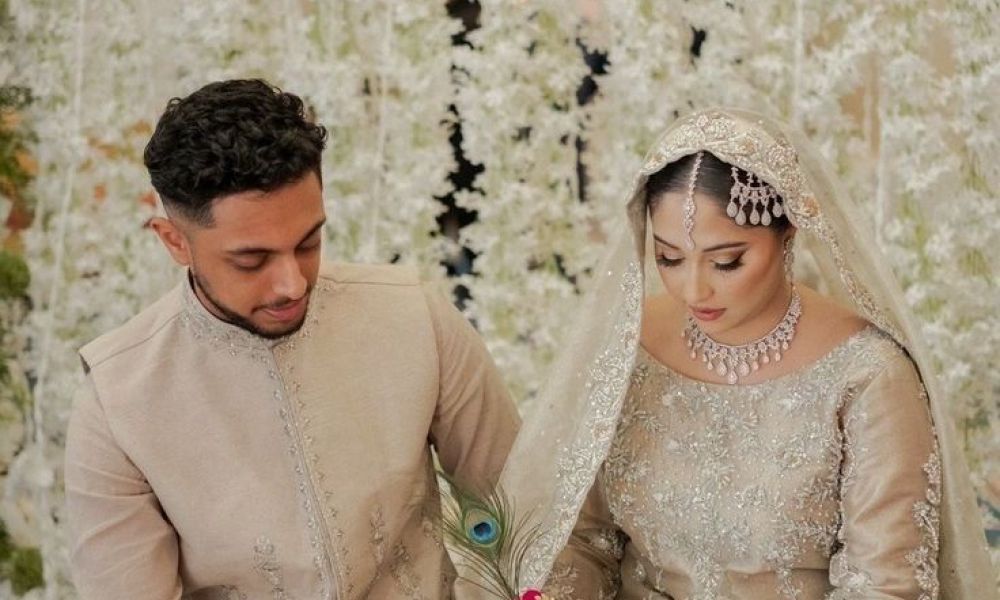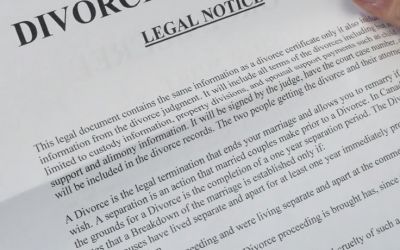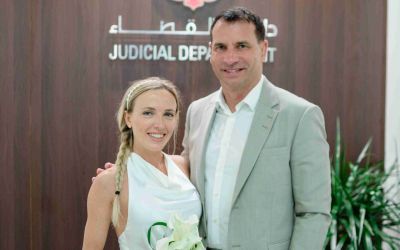
Court Marriage for Muslims in Dubai
Table of Contents ▼
Are you a Muslim couple looking to get married in Dubai? Wondering how a court marriage works for Muslims under UAE law? Discover how simple it is to have a court marriage for Muslims in Dubai, complying with local laws and Islamic traditions.
This guide walks you through everything you need to know—from legal requirements to Dubai court marriage fees, timelines, and international validity—about making your marriage official through a Sharia-compliant process.
What is the Difference Between Civil Marriage and Court Marriage?
A civil marriage in Dubai is a secular process governed by state law. It’s mostly available to non-Muslim couples and does not follow religious requirements.
A court marriage for Muslims, however, is conducted under Sharia law, overseen by Dubai Courts, and includes religious obligations such as guardian consent and a formal Nikah contract.
Key Differences:
- Court Marriage: Religious, involves a wali (guardian), mahr, and Muslim witnesses.
Civil Marriage: Non-religious, guardian and dowry not required, follows Abu Dhabi civil union options.

Overview of Muslim Court Marriage in Dubai
A Muslim court ceremony in Dubai is performed in the Dubai Sharia Court and follows strict Islamic protocols. It ensures both religious validity and legal registration. This type of Islamic wedding in UAE Dubai is highly recommended for residents and expats who wish to align with UAE law and Islamic values.
Couples may also opt for a remote Nikah, where legal steps are completed online while maintaining full compliance with Sharia.
Legal Requirements for Court Marriage for Muslims in Dubai
To begin your Islamic nuptials Dubai style, the following are legally required:
- Minimum Age: Both must be at least 18 Hijri years; otherwise, a judge must approve.
- Consent: Mutual and voluntary from both parties.
- Guardian (Wali): The bride must have her father’s or male guardian’s approval.
- Medical Test: A premarital medical check is mandatory.
- Witnesses: Two Muslim male witnesses must be present.
- Marriage Contract: A Nikahnama is signed and submitted to the Dubai Sharia Court.
This process ensures your union meets all standards for a valid Islamic wedding in UAE.
Provision of Sharia Law in Court Marriage for Muslims in Dubai
The Sharia compliance Dubai weddings must meet the following:
- A Muslim man can marry a Muslim, Christian, or Jewish woman.
- A Muslim woman can only marry a Muslim man.
- The Nikah procedure in UAE follows Quranic guidelines including mahr, consent, and witnesses.
Sharia reinforces the religious sanctity of marriage and protects both individuals’ rights.
Role of the Sharia Court in Court Marriage for Muslims in Dubai
The Sharia Court in Dubai serves as the religious and legal authority during the marriage process.
Its Responsibilities Include:
- Validating Documents: Emirates IDs, religion certificates, guardian ID.
- Witness Confirmation: Ensuring two male Muslims are present.
- Wali Verification: Confirming presence and approval of the bride’s guardian.
- Mahr Agreement: Confirming both parties have agreed to a fair dowry.
- Certificate Issuance: A valid marriage certificate is issued after registration.
This structured system ensures your marriage is legally binding in the Emirates matrimonial services guide.

Key Differences Between Muslim and Non-Muslim Court Marriage in Dubai
| Feature | Muslim Court Marriage | Non-Muslim Civil Marriage |
| Religious Rules | Required | Not applicable |
| Law | Sharia Law | Civil Law |
| Guardian (Wali) | Mandatory for bride | Not required |
| Dowry (Mahr) | Mandatory | Not required |
| Venue | Sharia Court, Dubai | Civil Registry or Abu Dhabi Court |
| Witnesses | 2 Muslim male witnesses | Any legal witnesses |
| Contract | Nikahnama | Civil Contract |
| Faith Requirements | Muslim man & woman / Ahl Al-Kitaab | Non-Muslims only |
How Much is the Mahr in Dubai for Muslim Court Marriage?
There’s no fixed amount for mahr. It is mutually agreed upon and intended to be fair, not burdensome.
- UAE Nationals: Usually between AED 20,000 and AED 50,000
- Expats: Flexible, based on family agreements
It is usually divided as:
- Prompt Mahr: Paid at the time of marriage
- Deferred Mahr: Payable in the future, typically in case of divorce
The UAE promotes simplicity in Islamic wedding UAE customs to encourage marriage.
Dubai Court Marriage Fees
The cost of a court marriage in Dubai depends on services chosen:
- Basic Government Fees: AED 500–1,000
- Packages with Legal Support: AED 3,500–7,500 or more
Planning assistance often includes translation, appointment booking, document submission, and final certificate collection. See Online Sharia Marriage for an all-inclusive solution.
Online Nikah and International Validity
Couples abroad or facing logistical issues can use online Sharia marriage services. This approach is convenient and still follows Sharia law.
It’s important to verify if the online Nikah is recognized in your home country. Many Middle Eastern and Asian countries accept such unions if authenticated by the Dubai Courts.
How Long Does a Muslim Marriage Take in Dubai?
The typical timeline is:
- 1 to 3 weeks, depending on paperwork, availability of the guardian, and appointment with Dubai Sharia Court.
Some cases may take longer if additional legal approval is required. Hiring a planner from Easy Wedding can simplify and accelerate the process.
What are the Dubai court marriage fees?
Basic fees range from AED 220, but complete services including translations, documents, and legal support can cost between AED 3,500 and AED 7,500.
Can we opt for an Islamic wedding in UAE Dubai while living abroad?
Yes, with online Sharia-compliant services, you can register your marriage remotely with the Dubai Court.
Are there any options besides court marriage for expat Muslims?
Yes, couples can also explore civil marriage in Dubai if at least one party is a non-Muslim or go for Abu Dhabi civil union options, depending on their religious status.
How does a Muslim court ceremony in Dubai differ from a simple Nikah?
A court marriage is legally binding and registered with the Dubai government, while a traditional Nikah may not hold legal status unless registered officially.
Is an Islamic nuptials Dubai style recognized internationally?
In most cases, yes. As long as the process is completed through Sharia Courts and documents are attested, your marriage should be accepted internationally.
Want to get married easily and legally in Dubai as a Muslim couple? Explore our solutions:
Plan your Islamic wedding in Dubai—Sharia-compliant, fully legal, and internationally recognized.



